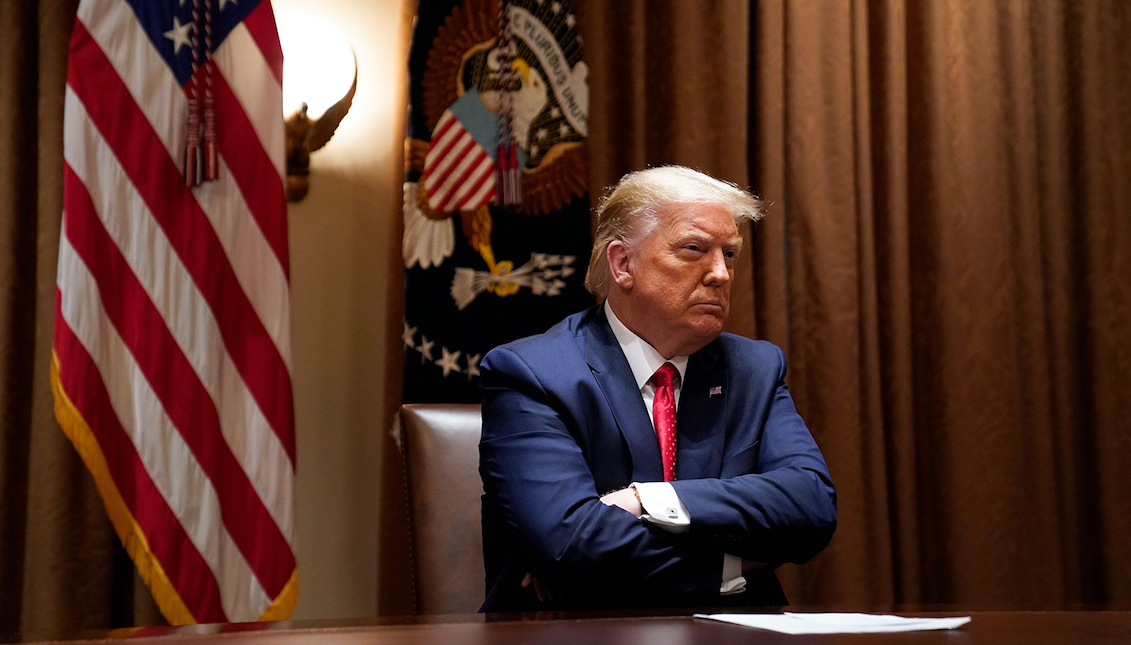
Supreme Court rules that Trump does not have "absolute immunity," opening the way for his tax information
The U.S. Supreme Court ruled that the president must comply with the orders of the lower courts unless he can better argue his case.
Against the prognosis of the White House, and in what is now considered a historic decision, the Supreme Court ruled Thursday that President Donald Trump cannot argue "absolute immunity" from criminal investigations into his and his family's financial affairs.
In what ABC News describes as "a major legal defeat" for the president, the court ruled, in short, that the president "is not above the law" nor is he "immune from ordinary criminal prosecution," University of Pennsylvania Ethics and Rule of Law Center Director Claire Finkelstein told reporters.
Chief Justice John Roberts, in drafting the 7-2-majority opinion, concluded: "no citizen, including the President, is categorically above the common duty to present evidence when asked in a criminal proceeding.”
"The President is neither absolutely immune from state criminal subpoenas seeking his private papers nor entitled to a heightened standard of need," Roberts said.
However, Roberts left the door open for the president to rehearse his case in the lower courts, allowing him to “raise further arguments as appropriate.
"The president may raise constitutional and legal objections to the subpoena as appropriate," wrote Justices Brett Kavanaugh and Neil Gorsuch, the two presidential appointees to the high court, in a concurring opinion.
Remember when, in 2016, Donald J. Trump said in the presidential debate that his tax return was "under routine audit" and that he would eventually publish it?
RELATED CONTENT
Well, in the face of the Supreme Court decision, the White House has tried to maintain the president's defense by saying that the I.R.S. is still on it.
“His taxes are under audit, and when they’re no longer under audit he will release them,” Kayleigh McEnany, the White House press secretary, told reporters on Thursday.
Although most polls show that most Americans believe it is the public's right to know about the president's tax returns, it wasn't until the New York Times published its research on the issue that we were able to learn a little more than what is hidden not only from Trump but from his family in general.
During its two investigations, the Times revealed that a loss of $916 million in Trump's 1995 returns would have allowed him to legally avoid paying income taxes for 18 years, as well as create a fake corporation to disguise millions of dollars in gifts from his parents, help his father take improper tax deductions, and underestimate his family's real estate holdings.
None of this, however, has directly influenced the president's electoral base.
FiveThirtyEight explained that Thursday's Supreme Court decision, involving three subpoenas of House committees for their records, determined that the House has the authority to issue subpoenas related to oversight of the executive branch, but said lower court judges did not adequately weigh the separation of powers issues inherent in the requests –suggesting that Congress' power to investigate the president is not unlimited.
By sending the case back to the lower courts for further consideration, the Court's decision implies that Trump's tax returns are likely to remain secret even after the November election.










LEAVE A COMMENT: